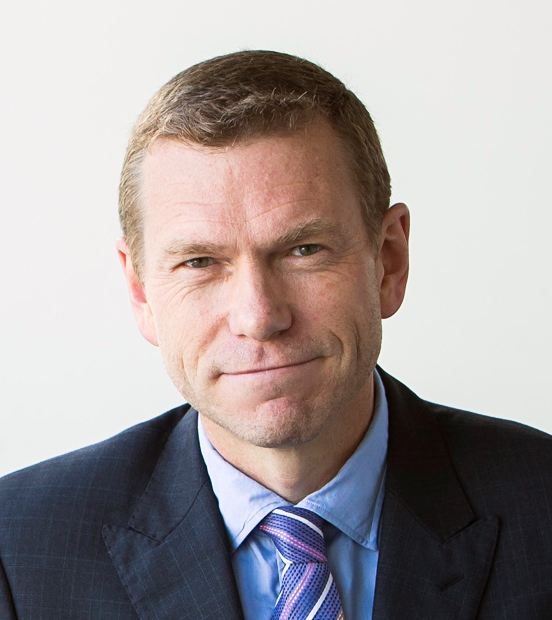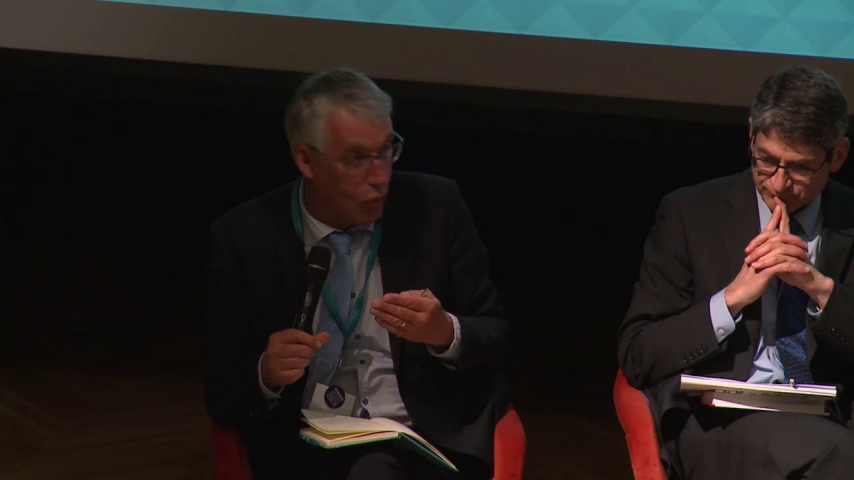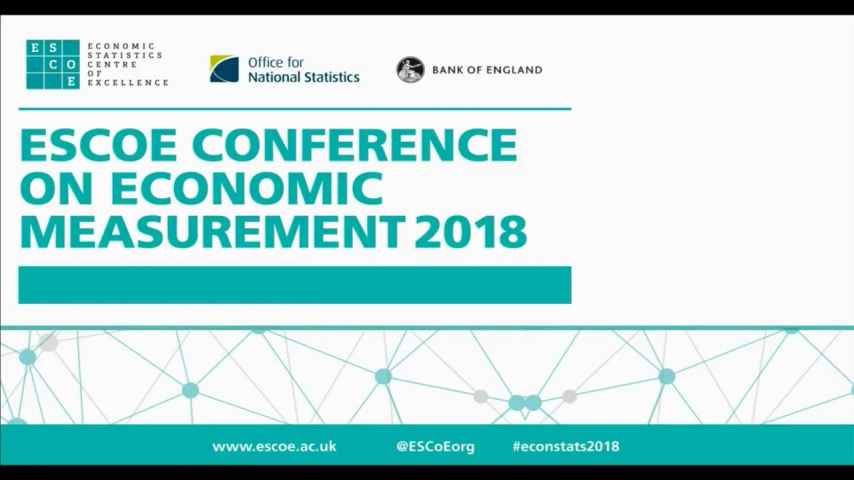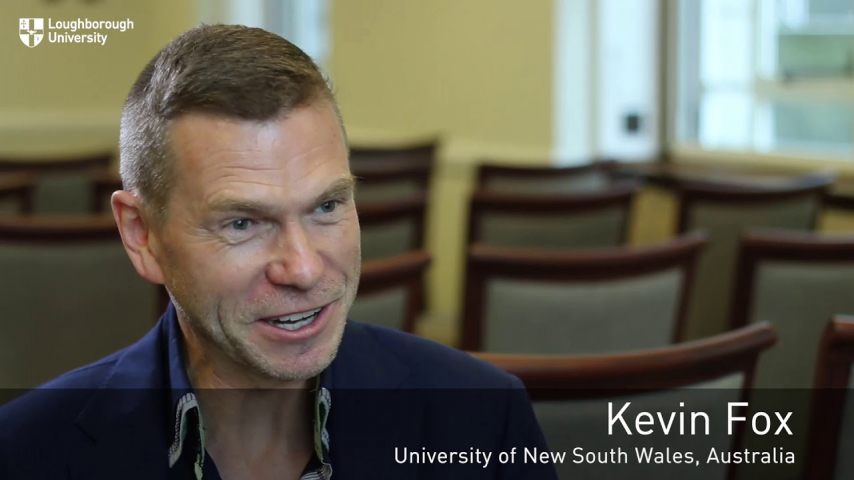
My Expertise
Economic Measurement, Productivity Analysis, Econometrics, Environmental Economics
Keywords
Fields of Research (FoR)
Environment and resource economics, Applied economics not elsewhere classified, Econometric and statistical methods, Microeconomic theoryBiography
I work primarily in the field of economic measurement, with a focus on productivity and prices, and a continuing career-long commitment to research-led public policy engagement. I am Director of the UNSW Centre for Applied Economic Research and on the Leadership Executive of the UK Economic Statistics Centre of Excellence. I was appointed as an Advisor to the Australian Treasury in 2016, chaired the 16th Series CPI Review Advisory Group in...view more
I work primarily in the field of economic measurement, with a focus on productivity and prices, and a continuing career-long commitment to research-led public policy engagement. I am Director of the UNSW Centre for Applied Economic Research and on the Leadership Executive of the UK Economic Statistics Centre of Excellence. I was appointed as an Advisor to the Australian Treasury in 2016, chaired the 16th Series CPI Review Advisory Group in 2009-2010, a member of the Expert Working Group of the Australian Council of Learned Academies on productivity 2012-2014 that reported to the Prime Minister’s Science, Engineering and Innovation Council, a member of the Australian Bureau of Statistics Methodology Advisory Committee 1999-2022, member of the UN/IMF/OECD/World Bank/Eurostat Intersecretariat Working Group on National Accounts, Digitalisation subgroup 2019-2020, and President of the International Association for Research in Income & Wealth 2020-2022. Amongst other current appointments, I am on the Steering Committee of the International Working Group on Price Indices (“Ottawa Group”), United Nations Statistical Commission, an Associate Editor of the Journal of Productivity Analysis, editorial board member of the Review of Income and Wealth. I am a Fellow of the Academy of the Social Sciences in Australia.
Research Interests:
- Econometrics
- Economic measurement
- Productivity analysis
- Environmental economics
Director of Centre for Applied Economic Research (CAER)
My Grants
- 2015-2019 Australian Research Council Discovery Grant, “Productivity Measurement, Drivers and Trends: A New Analytical Framework, with W.E. Diewert. $551,400.
-
2014-2017 Australian Research Council Linkage Grant, “The Economic Measurement of Property Markets: Prices, Bubbles, Economic Growth and Productivity,” with G. Otto, N. Stapledon, M. Hu, M. Kulish, W.E. Diewert, and I Syed. Industry Partners: RF Capital and CorVal Partners Limited. Total cash Funding: $1,075,000.
-
2008-2013: Australian Research Council Linkage Grant, 'Tackling the Tough Problems in Productivity Measurement: Infrastructure, Services and R&D,' with G. Otto, W.E. Diewert, E. Connolly and D. Parham. Industry Partners: Australian Bureau of Statistics and the Productivity Commission. Total cash funding: $947,322
-
2007-2010: Commonwealth Environmental Research Facilities program, 'Salinity, Uncertainty and Property,' with R.Q. Grafton and R. Keenan: $308,000
-
2007-2010: Commonwealth Environmental Research Facilities program, 'The Benefits and Costs of Bio-security,' with T. Kompas: $380,000
-
2006-2008: Australian Research Council Linkage Grant, for 'Scanner Data in the Consumer Price Index: How to expand and improve their use,' with J. de Haan, P-H. van Mulligan and M. Silver. Industry Partners: Australian Bureau of Statistics and the Central Bureau of Statistics (Netherlands). Total cash funding: $287,000
-
2005-2007: Australian Research Council Discovery Grant, for 'Biosecurity or Trade Barrier? The Economic Costs of Quarantine,' with R.Q. Grafton: $142,402
-
2005-2007: Australian Research Council Discovery Grant, for 'Measurement and Sources of Productivity Growth under Imperfect Competition,' with W.E. Diewert: $257,000
-
2005-2007: Australian Research Council Linkage Grant, for 'Economic Analysis of an Environmental Challenge: Salinity, Uncertainty and Property,' with R.Q. Grafton and R. Keenan. Industry Partner: Bureau of Rural Sciences. Total cash funding: $180,000
-
2004-2005: Spanish Ministry of Education Grant: 26,500 Euros
-
2003-2005: Australian Research Council Linkage Grant, for 'Can Electronic Point-of-Sale (POS) Data Improve the Australian Consumer Price Index,' with R.J. Hill. Industry Partner: Australian Bureau of Statistics. Total cash funding: $161,500
-
2003-2004: Australian Research Council Linkage Grant, for 'Regional Comparisons of Prices, Income and Growth in Australia,' with R.J. Hill. Industry Partner: Australian Bureau of Statistics. Total cash funding: $131,000
My Qualifications
1995 Ph.D., Department of Economics, University of British Columbia.
1992 M.A., University of British Columbia.
1990 M.Com., University of Canterbury.
1989 B.Com., University of Canterbury.
1985 Diploma in Japanese Language, Japan Missionary Language Institute, Tokyo.
Fellowships
Economics and Science Group, from 2015.
Society for Economic Measurement, elected 2014.
U.S.Conference on Research in Income and Wealth, elected 2011.
Academy of Social Sciences in Australia, elected 2010.
My Research Activities
- An illustrative example of the real world impact CAER’s research is having is the project undertaken by the Economic Measurement Initiative on the use of scanner data in measuring price changes. From the December 2017 quarter, the Australian Bureau of Statistics implemented the recommended methodological changes to maximise the use of transactions data to compile the CPI. This has come about as a result of UNSW-based research, conducted with the financial support of the Australian Research Council through the Linkage Grants program, in collaboration with the ABS and Statistics Netherlands. For further details, see the following and references therein:
- ABS (2017), “An implementation plan to maximise the use of transactions data in the CPI,” Information Paper 6401.0.60.004, Australian Bureau of Statistics, Canberra.
- I was part of a team that jointly won a major new UK prize in economics – the Indigo Prize 2017. The Prize challenged entrants to consider how to measure economic activity in a 21st century economy. I collaborated with colleagues from Imperial College, Wellesley College, LUISS (Rome), the Georgetown Centre for Business and Public Policy, and NESTA, to submit an entry titled “Improving GDP: Demolishing, Repointing or Extending?”. The aim of the competition was to catalyse a debate about how and what factors are currently measured given the evolving economies, technology and skills bases, and what should now be taken into consideration in official economic statistics that measure the health, size and growth of a modern economy.
- 2020 President, International Association for Research in Income and Wealth (IARIW).
- Invited Member, Steering Committee, International Working Group on Price Indices (\Ottawa Group"), United Nations Statistical Commission
- Invited Member, UN/IMF/OECD/World Bank/Eurostat Intersecretariat Working Group on National Accounts, Digitalisation subgroup.
- Chair, Panel B of the Academy of the Social Sciences in Australia. (Panel B represents Fellows of the Academy from Accounting, Economics, Economic History, Statistics and Marketing).
- President-Elect and Treasurer, International Association for Research in Income and Wealth.
- Invited Speaker, The Sixth IMF Statistical Forum, Washington DC, IMF HQ2, 19-20 November, 2018.
- Invited Speaker, OECD Global Forum on Productivity, Ottawa, 28-29 June 2018.
- Invited Speaker, North American Productivity Workshop, University of Miami, 12-15 June 2018.
- Invited Speaker, ESCoE Conference on Economic Measurement, Vancouver, Bank of England, 16-17 May 2018.
- Invited Speaker, Productivity Research Network Conference, 11-12 January 2018, Asian Development Bank Institute, Tokyo.
- Panellist on the Digital Economy, Industry & Innovation Workshop, Department of Industry, Innovation & Science, 26 September 2017, Canberra.
- “The Digital Economy, GDP and Consumer Welfare,” Presented at the NBER Summer Institute CRIW Workshop 17-18 July 2017, Cambridge MA.
- Financial Services Indices, Liquidity and Economic Activity Conference, Financial Resilience Research Centre and Bank of England, 23-24 May 2017, London.
In the media
How to Produce a Meaningful CPI during COVID-19 Lockdown?
May 2020
Can Inflation be Accurately Measured During a Lockdown?
Institute of Labor Economics
May 2020
What happens to inflation when we cannot buy goods during a lockdown?
May 2020
"Recalculating GDP for the Facebook age"
Financial Times, November 2018.
“Transactions data: a smarter method for measuring inflation”
Business Think, October 2017 Issue.
“Where is the productivity benefit in R&D tax credits?”
Business Think, October 2014 Issue.
Media releases
From the December 2017 quarter, the Australian Bureau of Statistics implemented methodological changes to maximise the use of transactions data to compile the CPI. This has come about as a result of UNSW-based research, conducted with the financial support of the Australian Research Council through the Linkage Grants program, in collaboration with the ABS and Statistics Netherlands. For further details, see the following and references therein:
ABS (2017), “An implementation plan to maximise the use of transactions data in the CPI,” Information Paper 6401.0.60.004, Australian Bureau of Statistics, Canberra.
From the September 2014 quarter, Statistics New Zealand incorporated retail transactions data into the Consumer Price Index (CPI). The method is a variant of that originally proposed by EMI group members. For further details, see the following, and references therein:
Krsinich, F. (2015), “Implementation of Consumer Electronics Scanner Data in the New Zealand CPI,” Statistics New Zealand. Paper presented at the New Zealand Association of Economists conference, Wellington, New Zealand, 3 July.
How to measure the value of free in the digital economy
Workshop outcomes being implemented in New Zealand and Europe.
Options for value capture - a way to fund infrastructure.
Australian House Prices: Symposium to ask, are they overvalued?
Using data in the real world. Interview with Prof Kevin Fox, Centre for Applied Economic Research.
Economic measurement initiative considers output and income growth.
Economic Measurement Group to examine real estate supply.
China’s eBusiness revolution is gathering speed.
Kevin Fox discusses the importance of boosting national R&D - Learn@Lunch.
My Engagement
President, International Association for Research in Income and Wealth (IARIW).
Invited Member, UN/IMF/OECD/World Bank/Eurostat Intersecretariat Working Group on National Accounts, Digitalisation subgroup.
Chair, Panel B of the Academy of the Social Sciences in Australia. (Panel B represents Fellows of the Academy from Accounting, Economics, Economic History, Statistics and Marketing).
Productivity Measurement Reference Group, Australian Bureau of Statistics.
Academic Representative, Economic Data and Analysis Network (EDAN) Governance Committee, Department of Industry, Innovation and Science.
Advisor, Methodology Advisory Committee, Australian Bureau of Statistics.
Advisor, The Treasury, Australian Government.
Council Member, International Association for Research in Income and Wealth.
Policy and Advocacy Committee, Academy of the Social Sciences in Australia.
Panel B Committee, Academy of the Social Sciences in Australia.
Australasian Standing Committee, The Econometric Society.
Advisory Council, Society for Economic Measurement.
International Advisory Board, International Productivity Monitor.
Digital Productivity Reference Group, Department of Communications and the Arts, 2016-2017.
Advisory Group on Services Productivity, Committee for the Economic Development of Australia (CEDA), 2016-2017.
Chair, Advisory Group, 16th Series CPI Review, Australian Bureau of Statistics, 2009–2010.
Contact
Publications
ORCID as entered in ROS
Videos



